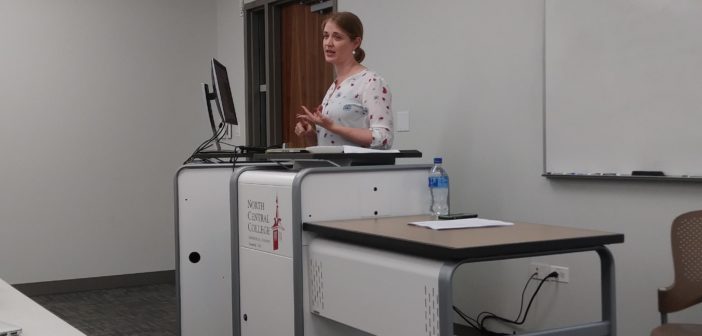The Fulbright U.S. Student Program is a U.S. government-sponsored program that financially supports graduating seniors, recent graduates, graduate students and early-career professionals to study, research or teach conversational English around the world.
Jack Shindler, director of the Center for Global Education, was a Fulbright recipient, and currently Hikaru Kobayashi is teaching at North Central as a Fulbright scholar-in-residence.
To be eligible to apply for a Fulbright grant, applicants must have a bachelor’s degree but cannot have a doctorate degree or be above the age of 30. The program is open to candidates from all academic disciplines, and grants are offered for either study/research or English Teaching Assistantships (ETAs), both of which are abroad.
The overall purpose of the program is to increase mutual understanding. ETAs, which are more popular at North Central, fund scholars to teach English and study languages in over 140 countries worldwide, and the purpose of the grant is to improve students’ English language abilities and knowledge of the United States.
Study/research grants fund scholars’ independent research/study internationally. For the most part, grant recipients are responsible for planning their own projects, which range from university coursework to lab or field research.
Receiving a Fulbright grant comes with several benefits that make applying all the more appealing. Grant recipients are provided with round-trip transportation, financial support based on the cost of living in the host country, supplemental health and accident coverage, and sometimes included is tuition, language or orientation courses, and/or research allowances.
For students that are interested in applying to become a Fulbright scholar, it is suggested to start working with the North Central program advisors Dr. Pearce Durst, coordinator of prestigious fellowships, and Dr. Kristin Geraty, director of the college honors program.
Applications consist of general biographical data, two essays (a statement of grant purpose and a personal statement), foreign language forms, three letters of recommendation, official transcripts from every institution an application has ever studied at (including community colleges and study abroad programs) and an affiliation letter for the research grant only (not required for the ETA).
After all of that, there will be a North Central interview to further help students with their applications. For students that are starting their applications early, it is suggested to build your academic profile through courses, research, intercultural experiences, leadership experiences, internships and becoming proficient or fluent in another language.
When it comes time for applicants to ask people they know for letters of recommendation, it is suggested that students build good relationships with professors they are interested in asking to write a letter for them, that way the letters could be genuine and well-tailored to the student.
As for underclassmen, it is suggested that you “start to even think about who you might ask (for a letter) and form a relationship with them so they get to know you and work with you,” said Durst.
In addition, there is no GPA requirement for the program because it is not a determining factor, however, the higher the better.
“You want your grades to be as strong as possible, but Fulbright seems to be the (program) that experiences are certainly as important as grades,” said Geraty. Students start to prepare their applications from April to September. The North Central campus deadline is August 1 and the official deadline is Oct. 9. Then from there it goes to a national screening committee for review.
Previous North Central Fulbright Recipients include Tyler Drozd (Germany, ETA) and Rachel Birkley (Spain, ETA). Heidi Nelson, who received an ETA grant in 2016 and is now a teacher in Schaumburg, went to the Argentinian providence of Formosa.
Nelson’s piece of advice to current Fulbright applicants is to be diligent, dedicated and patient because applying is a long process and takes a few months for the application committee to inform students of whether they received the grant.
For more information on Fulbright grants, contact Dr. Geraty at kgeraty@noctrl.edu or Dr. Durst at pdurst@noctrl.edu, or visit the Fulbright website at us.fulbrightonline.org.

